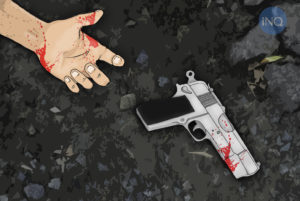MANILA, Philippines — Foreign Affairs Secretary Teodoro Locsin Jr. on Monday called for an end to the government officials’ blame game over the alleged fallout of the COVID-19 vaccine supply deal with US drugmaker Pfizer.
In an interview over CNN Philippines, Locsin admitted that officials cannot keep finger-pointing over the alleged “dropping of the ball” that bungled the deal to buy 10 million doses of the Pfizer vaccine.
“That’s over and done with,” Locsin said. “It’s done because Gen. Carlito Galvez is now the sole procuring authority. He’s gonna work with the DOH (Department of Health).”
Locsin tweeted last week that he and Philippine Ambassador to US Jose Manuel “Babe” Romualdez were able to secure millions of vaccine doses of Pfizer vaccines which were supposed to arrive in the country by January 2021.
However, he bared that the plans were foiled after “someone dropped the ball.” Locsin did not identify who he was referring to.
Senator Panfilo Lacson claimed that it was Health Secretary Francisco Duque III who allegedly botched the deal by failing to submit a confidentiality data agreement (CDA) that would have allowed the transaction to push through.
Duque denied the allegations, saying “there is no such thing as dropping the ball” as negotiations with Pfizer are still ongoing.
He also said that he just wanted to make sure that the provisions of the Confidentiality Disclosure Agreement “are not loose or disadvantageous to the government.”
Earlier in the CNN interview, the Foreign Affairs chief said “it’s okay if somebody drops the ball on Pfizer deal because Babe (Romualdez) and I have many balls.”
He made the statement after he announced that talks with American biotechnology company Moderna Inc. about a possible coronavirus vaccine supply deal may start on or before Dec. 30.
Locsin also said that the Philippines is assured of 30 million doses of Novavax Inc.’s vaccine, which will be produced by the Serum Institute of India.
So far, the Philippines has secured over two million doses of coronavirus vaccines from British drugmaker AstraZeneca through a tripartite agreement it signed with the private sector.
The government is also looking into the vaccines of China’s Sinovac Biotech and Russia’s Gamaleya Research Institute.


